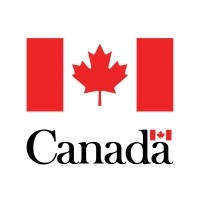
Open
Humanitarian Workforce (HWF) - COVID-19 and other large-scale emergencies
Last Update: October 27, 2025
Canada
Supports NGOs in emergency response and capacity building activities
Grant and Funding
At a glance
Funding available
Financing goals
Strengthening governance
Increasing community impact
Supporting volunteer engagement
See more
Eligible Funding
- Up to 100% of project cost
Timeline
- Closing date : March 31, 2026
Eligible candidates
Eligible Industries
- Health care and social assistance
- Other services (except public administration)
- Public administration
Location
- Canada
Legal structures
- Non-profit
- Public or Parapublic institution
Annual revenue
- All revenue ranges
Organisation size
- All organization sizes
Audience
- Indigenous Peoples
- Language Minorities
- Rural or Northern Residents
- Canadians
Non-profit candidates
Sector of operation
- Mental Health and Crisis Intervention
- Other Health Services
- Social Services
- Emergency and Relief
- Economic, Social and Community Development
- Diversity and Inclusion
Target groups
- General public
- Indigenous peoples
- Rural / Remote communities
- Nonprofits / charities
- Low-income individuals / families
- Minority groups
Revenue structures
- All structures
Scope
- Municipal
- Provincial
- National
Overview
The Humanitarian Workforce (HWF) - COVID-19 and Other Large-Scale Emergencies program provides up to $36.3 million per project annually to Canadian not-for-profit organizations to enhance their capacity and deploy resources in response to COVID-19 and other major emergencies. Eligible activities include capacity building, emergency response and recovery, virtual relief services, and surge health and emergency management services.
Activities funded
- Building capacity within NGOs to rapidly respond to emergencies, such as pandemics and natural disasters.
- Deploying personnel and resources to support emergency response efforts, including health and emergency management services.
- Providing virtual relief services, such as information, referrals, and emergency social support to affected individuals and communities.
- Supporting relief and recovery activities for communities, especially those disproportionately impacted by large-scale emergencies.
- Delivering risk reduction education, training, and preparedness initiatives to enhance community resilience to emergencies.
Examples of admissible projects:
$ 310,000
Launching temporary emergency housing for families displaced by wildfires
$ 92,000
Training volunteers for rapid disaster deployment and emergency logistics
$ 152,000
Equipping community shelters with emergency medical and prevention supplies
$ 690,000
Establishing mobile emergency food delivery services for vulnerable populations
$ 380,000
Expanding virtual trauma counselling support for emergency-affected families
$ 126,000
Creating emergency risk reduction workshops for Indigenous communities
Eligibility
- The applicant must be a Canadian not-for-profit organization incorporated under Canadian law.
- The organization must have a presence in Canada and the capability to provide domestic services, including a distinct Canadian chapter.
- The organization must have a national reach and the ability to provide services in both official languages.
- The applicant must demonstrate at least five years of experience mobilizing quickly to respond to large-scale domestic emergencies such as floods, wildfires, or pandemics.
- The project must directly aim to reduce the impact of COVID-19 or other large-scale emergencies in Canada and fit within the program's eligible activity streams.
Who is eligible?
- Canadian not-for-profit organizations
- Non-governmental organizations (NGOs) with domestic service capacity in Canada
Who is not eligible
- For-profit companies are not eligible (only Canadian not-for-profit organizations may apply).
- Governmental organizations (municipal, provincial, territorial, or federal) are not eligible.
- Organizations that have already received funding for the proposed project from any Government of Canada department or agency, or from another order of government, are not eligible.
- Organizations that are not incorporated under Canadian law or do not have the capacity to provide domestic services in Canada are not eligible.
Eligible expenses
- Salaries, benefits, and overtime for administrative and operational employees dedicated to eligible activities.
- Emergency equipment and supplies (e.g., PPE, medical supplies, cots, tents).
- Medical equipment acquisitions ($10,000 or less per item).
- Movement, shipping, and transport of equipment and materials.
- Transportation services for eligible activities.
- Sustainment of deployed personnel and volunteers (e.g., accommodations, meals during deployment).
- Operational supplies for emergency social services and basic needs (e.g., lodging, food, clothing for individuals and families).
- Professional services (legal, accounting, audit) if the capacity does not already exist within the organization.
- Incremental insurance fees related to operations.
- Minor capital acquisitions, program supplies, and materials, each up to $10,000 per purchase.
- Travel and living expenses directly linked to the project (subject to government rates and allowances).
- Rental of equipment or facilities required for project delivery.
- Computer services, costs for research, data collection, and statistical analysis.
- Translation and interpretation services related to the project.
- Printing and distribution activities connected to eligible project activities.
- Costs to restore, repair, or decontaminate infrastructure and property to a level exceeding pre-disaster condition (subject to limits).
- Hospitality expenses in Indigenous contexts (gatherings, feasts, ceremonies, circles; food and drink, not alcohol).
- Payments for response and recovery services to NGOs, small businesses, Indigenous Governing Bodies, or, in certain cases, municipalities or community governments.
- 12% flat administrative fee on eligible project expenditures to cover indirect costs and overhead.
- Other costs approved in writing by the Minister of Public Safety and Emergency Preparedness.
Eligible geographic areas
- Jurisdictions within Canada
Selection criteria
- Extent to which the project builds capacity to respond to urgent relief needs.
- Extent to which the project enhances readiness for a range of large-scale emergencies (e.g., COVID-19, floods, wildfires).
- Degree to which the project introduces new capabilities not already available.
- Extent to which the project addresses the needs of at-risk or vulnerable populations.
- For deployment funding: demographic and geographic reach, urgency of need, experience with marginalized communities, value for money, and alignment with specific requirements of requesting jurisdictions.
How to apply
1
Verify organization eligibility
- Identify your organization as a Canadian not-for-profit with national reach
- Confirm your eligibility according to the program's criteria (incorporation, operational capacity, history of emergency response, official languages, support from provincial/territorial government)
2
Define project scope and stream
- Identify the funding stream(s) and service category(ies) relevant to your proposal
- Ensure your project directly targets COVID-19 or other large-scale emergencies in Canada
3
Prepare project proposal and budget
- Prepare a detailed project proposal, including objectives, expected outcomes, urgent relief needs, and direct links to emergencies
- Describe target populations, activities, key resources, stakeholders, potential risks, and mitigation measures
- Develop an itemized budget and list all anticipated sources of funding for the same expenses
4
Complete compliance sections
- Include all required declarations regarding conflict of interest and lobbying compliance
- Ensure project supports official languages requirements and privacy obligations
- Add complete contact information for the project authority
5
Submit application to Public Safety Canada
- Submit the completed application and supporting documents to Public Safety Canada
- Ensure you meet all submission requirements as specified by the program
6
Await funding decision
- Monitor the status of your application
- Provide any additional information if requested by program officials
Additional information
- The program will expire on March 31, 2026.
- Recipient organizations can apply a 12% administrative flat fee on eligible expenditures to cover indirect costs.
- All intellectual property developed as part of funded projects will belong to the recipient but must be licensed non-exclusively to the Minister.
- All communications and services related to funded projects must be provided in both official languages.
Contacts
hwf-moh@ps-sp.gc.ca
Canada
Apply to this program
Frequently Asked Questions about the Humanitarian Workforce (HWF) - COVID-19 and other large-scale emergencies Program
Here are answers to the most common questions about the Humanitarian Workforce (HWF) - COVID-19 and other large-scale emergencies. This section explains what the program is, how much funding is available, eligibility requirements, application deadlines, and other important details to help you determine if this grant is right for your business.
What is the Humanitarian Workforce (HWF) - COVID-19 and other large-scale emergencies?
How much funding can be received?
Who is eligible for the Humanitarian Workforce (HWF) - COVID-19 and other large-scale emergencies program?
What expenses are eligible under Humanitarian Workforce (HWF) - COVID-19 and other large-scale emergencies?
Who can I contact for more information about the Humanitarian Workforce (HWF) - COVID-19 and other large-scale emergencies?
Where is the Humanitarian Workforce (HWF) - COVID-19 and other large-scale emergencies available?
Is the Humanitarian Workforce (HWF) - COVID-19 and other large-scale emergencies a grant, loan, or tax credit?
Apply to this program
More programs like this

Grant and FundingClosed
Canada Service Corps – Service Placements Regional Stream
Employment and Social Development Canada (ESDC)Funding for organizations to develop youth volunteer service placements
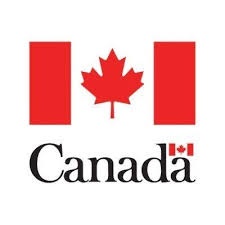
Grant and FundingOpen
Active Transportation Fund
Housing, Infrastructure and Communities CanadaSupports infrastructure projects for safer, more accessible active transportation
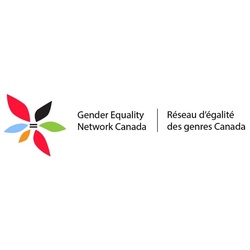
Partnering and CollaborationGrant and Fundingarchived
Equality for Sex, Sexual Orientation, Gender Identity and Expression Program
Women and Gender Equality Canada (WAGE)Supports equality initiatives for sex, sexual orientation, and gender identity

Grant and FundingClosed
Crime Prevention Action Fund (CPAF)
Public Safety Canada (PSC)Supports evidence-based crime prevention initiatives for at-risk communities
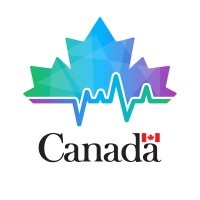
Grant and FundingClosed
Substance Use and Addictions Program (SUAP)
Health CanadaSupports innovative projects addressing substance use prevention and treatment
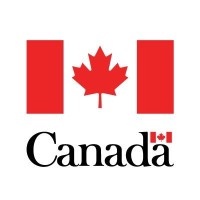
Grant and FundingClosed
Enhanced Road Safety Transfer Payment Program (ERSTPP)
Transport CanadaFunds projects to enhance road safety and reduce traffic injuries
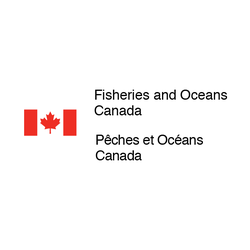
Grant and FundingClosed
Canada Nature Fund for Aquatic Species at Risk (CNFASAR)
Fisheries and Oceans Canada (DFO)Supports recovery and protection of aquatic species at risk

Grant and FundingOpen
Supporting the Canadian Red Cross' Urgent Relief Efforts Related to COVID-19, Floods and Wildfires
Public Safety Canada (PSC)Supports Canadian Red Cross emergency response to COVID-19, floods, wildfires

Grant and FundingClosed
Small Craft Harbours Abandoned and Wrecked Vessels Removal Program
Fisheries and Oceans Canada (DFO)Funding for removal and disposal of abandoned vessels in harbours

Grant and FundingOpenClosing Soon
CanExport GAC-Led Delegations
Trade Commissioner Service (TCS)Cost-sharing support for SMEs joining GAC-led trade delegations
Sign up to our platform to access the Humanitarian Workforce (HWF) - COVID-19 and other large-scale emergencies information sheet for free
Get access to 4,000+ programs, practical guides, personalized alerts, and an AI assistant to support your grant applications.